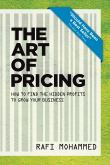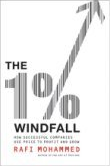Congestion Pricing: So What Do You Think?
Last Monday’s New York Times mentioned that congestion pricing may be implemented in downtown Manhattan. The idea is that during peak times, drivers will be charged $8 to enter a high traffic zone below 60th Street. The purpose of this $8 charge is, of course, to reduce traffic. This results in faster drive times and lower emissions/gas usage. The cash reaped from this peak traffic tax isn’t bad either. Over $500 million in annual revenues are expected to be collected, which would be dedicated to mass transit improvements.
Congestion pricing has its merits. Leila Abboud and Jenny Clevestrom wrote a fact-chocked Wall Street Journal article on a 2006 congestion pricing experiment conducted in Stockholm. To alleviate traffic, drivers were charged the equivalent of $2.76 to drive in Stockholm’s city center during the peak time of 4 PM to 5:29 PM. However, by waiting until after 6:30, passage was free.
One of pricing’s greatest attributes is its ability to change people’s habits. The results of Stockholm’s congestion pricing experiment emphatically demonstrate this power of persuasion: traffic over a busy cordon decreased by 22%, accidents involving injuries decreased by 5% - 10%, and city exhaust emissions dropped by 14%. Additionally, use of all forms of public transportation increased by 6% while ridership on inner-city bus routes jumped by 9%. Pretty impressive, don’t you think?
I’m on the fence about implementing congestion pricing. Sure…I understand the efficiency arguments that my economics brethren highlight as a key benefit of congestion pricing: only those that value it most will drive during capacity challenged times. That said, there’s something that makes me uneasy about congestion pricing. After all, all of us pay the taxes that build and maintain public roads. Perhaps it’s my penchant to drive through downtown Boston during peak hours (except when the Red Sox are in town, traffic is surprisingly smooth).
Even without charging for peak usage, there is a deterrent to driving during high traffic times. How many of us have changed our plans because we think traffic is going to be "a nightmare.” Somehow this self-policing behavior seems more “fair” in allocating usage of a publicly funded good compared to only granting passage to those who pay.
We all know that pricing can do a great job of allocating scarce resources…but its implementation raises a wealth of ethical questions for publicly funded services. If congestion pricing is implemented…what’s next? Charging to enter local parks on weekends? Allocating peak time police, fire, and emergency medical services to those with the largest wallets? Prioritizing winter street repairs to neighbors who contribute to a pothole collection kitty?
I’d love to hear your comments on what’s potentially the start of a new pricing trend in our society.
Readers' Comments on This Blog Entry
Wake up! The government definitely controls our behavior now. How many of you hold on to investments longer than 1 year to get the 15% capital gains tax versus selling off before the year's up and get hit with 35%?





You ask the tough questions at the end. Between the price of fuel and the attempted solution of the congestion problem by implementing these congestion pricing strategies, it will be interesting to see exactly who will be driving around downtown during rush hour in 10 years. I remember during the '84 Olympics in L.A., the predictions about the traffic were dire. Well, the local government adjusted the working hours for city and county employees and people adjusted their travel stategies and used rapid transit. The result was that during those 16 days, L.A. experienced the lightest traffic that they have had since the 40s. We see what the price of gas has already done to driving and car purchasing habits. If you make it so difficult or expensive to drive at peak hours, people WILL adjust their habits. I think you're going to see a lot more of this, especially if the elections go to the democrats who seem somewhat more open to quicker movement to the whole alternative fuel/alternative automobile technology strategy. We can do this now or we can wait around and only make the changes later on when people are more desperate and the whole thing will be a lot more expensive..